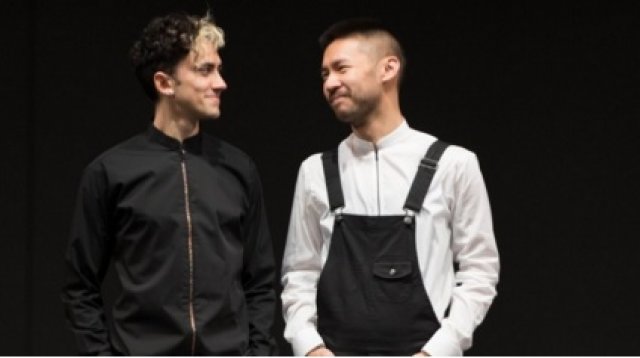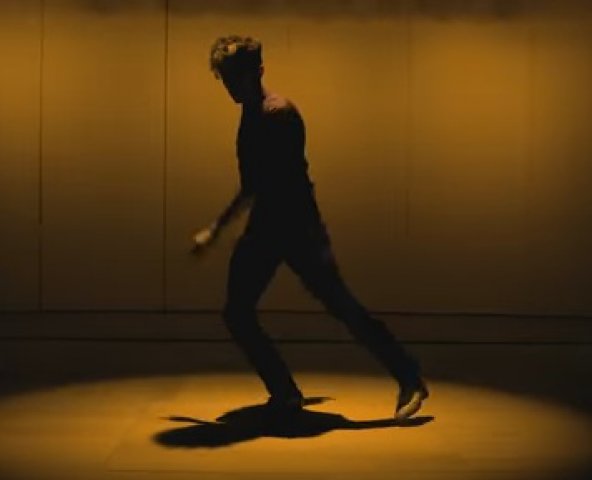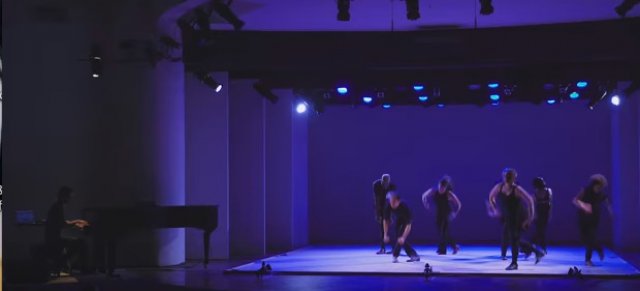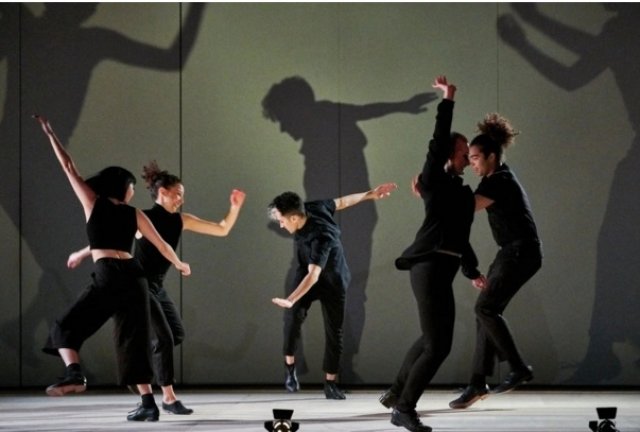Tao and Teicher at the Guggenheim Museum
World Premiere of More Forever
By: Susan Hall - Jan 07, 2019
Caleb Teicher is no stranger to Jacob's Pillow. This summer he will perform More Forever, which had its world premiere at the Guggenheim Museum in New York this weekend. It is a glorious piece developed in collaboration with pianist, composer and actor Conrad Tao. The careers of emerging artists are encouraged in the Museum's Works & Process series, which is in Bilbao as well as New York.
Tao and Teicher met at the YoungArts Foundation when they were 17 and 18 respectively. They became friends and decided to work together. YoungArts is committed to identifying and aiding emerging talents at crucial points in their careers. Both Tao and Teciher won competitions there.
We saw a draft of More Forever in May at the Baruch Performing Arts Center. Investigating American dance, the stage was lined with a thin layer of sand. Jazz, tap and the lindy hop were all on display. Tao provided the music on piano and electronics. The line between music and movement was erased as the two artists collaborated. Mr. Sandman turned on his magic beam and brought us a dream.
Teicher began as a drummer and has now made his inner drum into a human instrument. Driving his dance with compelling beats of infinite variety, he can unexpectedly withhold a predictable motion and surprise. More important, as tap diva Brenda Bufalino points out, Teicher moves the tap form from the cliches into which it had fallen back up to the level of art again. Movement is impelled by feeling and the audience is enraptured.
While the earlier version of the piece made the delivery of sand through the clenched hands of the dancers obvious, the Guggenheim production lets this slide. Yet, the sound magnified by mikes on the floor of the stage platform, provides its own dimension to the score, predictably grating and at times smooth under the soft motions of the dancers' soles. Hands occasionally clap, flapping arms and delicate dips add to the show's shapes.
Tao opens with Debussy-like arpeggios over or under a steady beat . The effect is both repetitive and lovely because of the colors of the arpeggios. Tao and the Teicher troop move sometimes together in unison and at others in conflict.
For one dance, Tao moves to the dance floor to perform on a tiny toy piano. His role is captivating, at once incidental and dangerous. Will he be stepped on?
At one point, Teicher breaks our into song. His father composes song and lyrics. Why not?
While Teicher comes from a musical family, Tao’s parents are scientists. Yet both young men have pursued their separate and joint bliss driven only by personal choice. No Rose Thompson Hovick here to cause worry about the future of these maturing talents.




